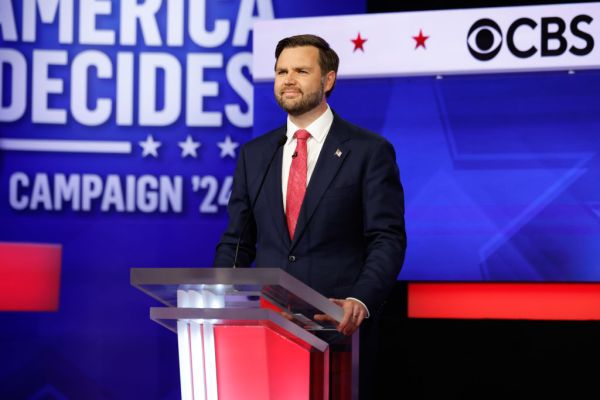American progressivism has long understood itself as a project of political liberation. From liberalizing restrictions on pornography to legalizing drugs and prostitution to broader efforts to reconceptualize the family and religion as institutions of oppression and privilege, the left’s track record is one of favoring individual autonomy over older values of community, social norms, and civic order.
Yet there is a tradition of communitarianism on the political left that is often forgotten amid the protests, shoutdowns, and attempted cancellations. Democratic politicians like Daniel Patrick Moynihan, Sargent Shriver, and Robert F. Kennedy—the original, not the junior—were less afraid to tap into themes of family, community, and civic institutions as providing critical insulation against both the individualizing tendency of the market and the totalitarian temptations of the state. This tradition was perhaps most prevalent among the original neoconservatives, intellectuals and writers who saw the failures of Great Society liberalism and moved right, forming the backbone of the domestic policy revolution that helped reform welfare, rescue American civic life, and revive American prosperity.
Today, with 21st-century progressivism exhausted and the “vibes” having shifted, we are seeing hints that a new, doubtless very different, neoconservatism could be emerging from Democrats who see progressive business as usual as having failed not just politically, but substantively. When it comes to family and civil society, some on the political left are showing signs of beginning to rediscover that older, and much needed, tradition.
They face some serious political headwinds: The left’s individualist tendencies are ever-present. When it comes to family, for instance, evidence that marriage improves outcomes for kids, adults, and society at large continues to pile up. But progressives have traditionally tended to eschew anything that smacks of promoting marriage over other forms of family structure. Take the reaction to a memo by Transportation Secretary Sean Duffy that suggested his department place a greater weight on grant proposals from areas with higher-than-average marriage and birth rates (suggesting that they will need additional infrastructure in years to come). This wasn’t long-range planning, Democratic senators told the New York Times—it was “deeply frightening” and “disturbingly dystopian.”
So it comes as no small irony that one of the most explicitly pro-marriage tax provisions introduced at the federal level in recent years came not from a Bible-thumping member of the religious right, but a moderate, “Blue Dog” Democrat from Lewiston, Maine.
In his Family Income Supplemental Credit (FISC) Act, introduced earlier this year, Rep. Jared Golden, who represents what are essentially the non-Portland parts of the Pine Tree State, borrowed heavily from a policy paper written by the conservative think tank American Compass back in early 2021. In this bill, Golden incorporated a provision that deliberately eschews strict neutrality when it comes to household structure: The bill would give married couples a 20 percent larger child tax credit than non-married parents would receive.
The bill isn’t likely to see the light of day in a GOP-controlled Congress, and might even have a hard time attracting Democratic endorsers. Skeptics may point out that married couples already tend to have higher incomes than cohabiting or single parents, rendering an extra benefit distributionally unfair. Others may wonder to what degree decisions about marriage and family are influenced by the tax code, and whether it would be an effective vehicle among lower earners who are likely to face other marriage-related penalties.
But FISC is a more explicitly pro-marriage tax approach than was, for example, included in recently-passed One Big Beautiful Bill Act, which increased the standard deduction for head-of-household filers. As the Niskanen Center’s Joshua McCabe wrote, that decision lamentably “exacerbate[s] the well-documented marriage penalties for single parents that are already built into this filing status.” And it should nonetheless be notable that a Democrat from Maine was unafraid to adopt the clear, pro-marriage signal of the FISC approach and embrace the importance of married parents in a way even some Republicans might struggle to.
Another New England Democrat made waves on Twitter for sounding some communitarian notes about lifestyle libertarianism making it more difficult for young men to thrive. At a conference last month, Rep. Jake Auchincloss of Massachusetts was quoted as saying the U.S. lets “corporations route young men to online sports betting, pornography, and social media,” and suggested that “young men are the worse for it, both in the job market and the marriage market.”
He’s not the only Democrat to sound the alarm about the plight of young men. Inspired heavily by the work and advocacy of Richard Reeves, the founder of the American Institute for Boys and Men, some lawmakers on the left have been talking about the need for stronger webs of support for men and boys. California Gov. Gavin Newsom, for example, recently signed an executive order with the goal of “reconnect[ing] men and boys with pathways to enter education or the workforce, including through service opportunities.”
Yet few have been as upfront in suggesting Democrats adopt seemingly unconventional wisdom as Auchincloss, who has also written on his Substack about the need for Democrats to re-embrace a politics of public order. As a recent profile in the Wall Street Journal noted, Auchincloss has accused tech companies of pushing “digital dopamine” on young people and has tweeted about protecting “family time from screen time.”
“What you want to do is challenge [young men] to be and build something bigger than themselves,” he told the Boston Globe in July. “That’s what young men are looking for, is a mission that they can be a part of together.”
That’s a political understanding that—knowingly or not—taps into the Burkean understanding of “little platoons,” and Robert Nisbet’s writing about the “quest for community”—and tapping into that tradition can help us understand how we’ve become so alienated and polarized. And it at least grapples with the challenges that a prescription of ever-greater political liberation cannot address. It continues to burble among left-leaning commentators like Reeves, former Obama advisor Michael Wear, and Chamber of Progress senior advisor Gary Winslett, each of whom have pitched their fellow Democrats on the need to take the needs of men, families, and public order seriously.
For a long time, conservatives were seen as the moral scolds—and I say this with affection, being somewhat of a moral scold myself. The religious right opposed progressive cultural changes, fought drugs and pornography, and continues to be one of the remaining principled voices against the explosion of smartphone-based sports betting nationwide. They—or should I say, we—did so because widespread access to drugs, childhoods lived via screens, cities plagued by crime, and a cultural abandonment of the importance of marriage seemed destined to lead to negative consequences, some of which we are living through today.
But it seems like it’s no longer just some on the right that see weed, porn, and sports betting as trapping young people in an extended adolescence, making it harder for them to succeed in the labor market or in the dating pool. Today’s neo-neo-conservatives will doubtless disagree with the right on any number of issues of political economy. But their willingness to take seriously the long-term consequences of lifestyle libertarianism suggest a new terrain—and coalition—for a politics of flourishing in the second quarter of the 21st century.







Please note that we at The Dispatch hold ourselves, our work, and our commenters to a higher standard than other places on the internet. We welcome comments that foster genuine debate or discussion—including comments critical of us or our work—but responses that include ad hominem attacks on fellow Dispatch members or are intended to stoke fear and anger may be moderated.
With your membership, you only have the ability to comment on The Morning Dispatch articles. Consider upgrading to join the conversation everywhere.